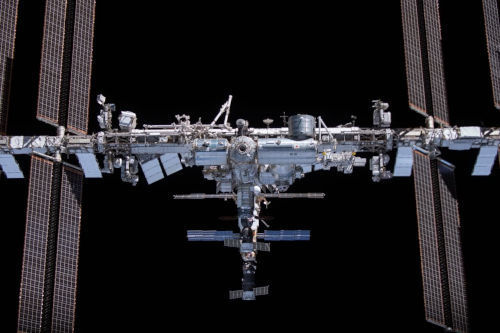Moscow. March 1st. INTERFAX-AVN - The extension of the agreement on the operation of the ISS under sanctions causes skepticism, the press service of Roscosmos told Interfax on Tuesday.
"If we don't come to an agreement, it will affect the international manned space program. Let me remind you that now Roscosmos has permission from the government to operate the ISS only until 2024. And the question of extending the agreement in the current conditions causes us skepticism," the press service reported.
The press service said that Roscosmos has been building relations with Western partners for decades, demonstrating openness and readiness for international cooperation.
"They gave them a shoulder in a difficult moment, as, for example, in the case of the United States, when their shuttles stopped flying, or with Europe, when American partners abandoned the ExoMars project," the state corporation reported.
The day before, the head of the NASA manned program, Kathy Luders, said that NASA and Roscosmos continue to cooperate normally, despite the situation in Ukraine. Also, according to her, there are no plans among the ISS partners to abandon work at the station.
Earlier, the introduction of sanctions against the Russian space industry was reported in the United States and the European Union. In response to European sanctions, the head of Roscosmos, Dmitry Rogozin, announced the termination of Soyuz rocket launches from the Kourou cosmodrome in French Guiana and the withdrawal of Russian specialists from there.
On February 24, the press service of the state corporation reported that Roscosmos continues to fulfill its obligations to work on the ISS, work on the agreement on cross-flights with the United States also continues.
Rogozin stressed that cooperation between Russia and the United States in space is necessary for the safe operation of the ISS, in the event of its termination, the station may leave orbit.
The life of the ISS expires in 2024. Russia is negotiating with its partners on the station to extend its operational life until 2030. The Russian Federation, as reported, decided to build its own orbital station, an exit from the ISS project is being considered, and this is due to the deterioration of the technical condition of the Russian segment of the station.

